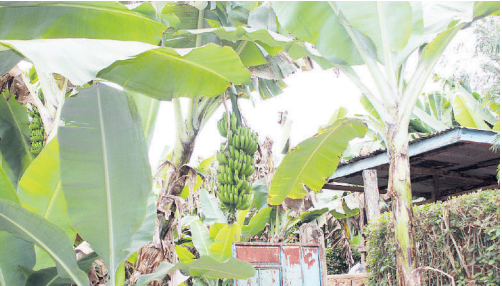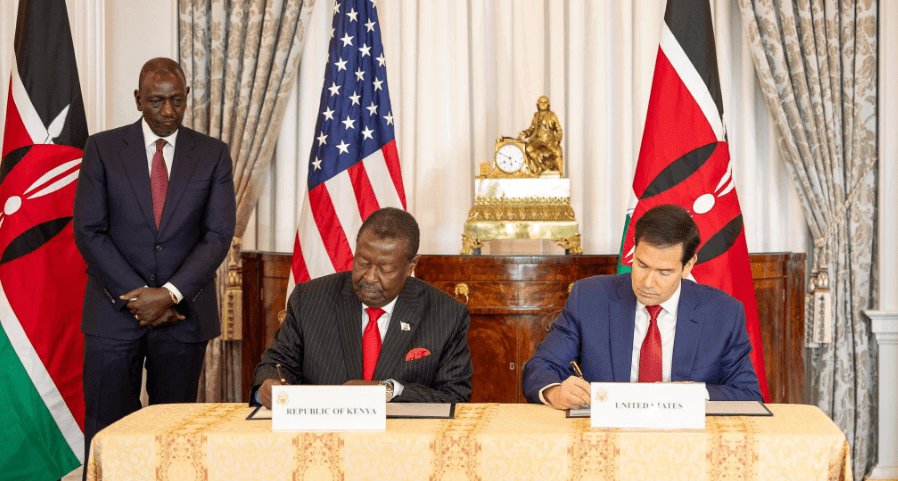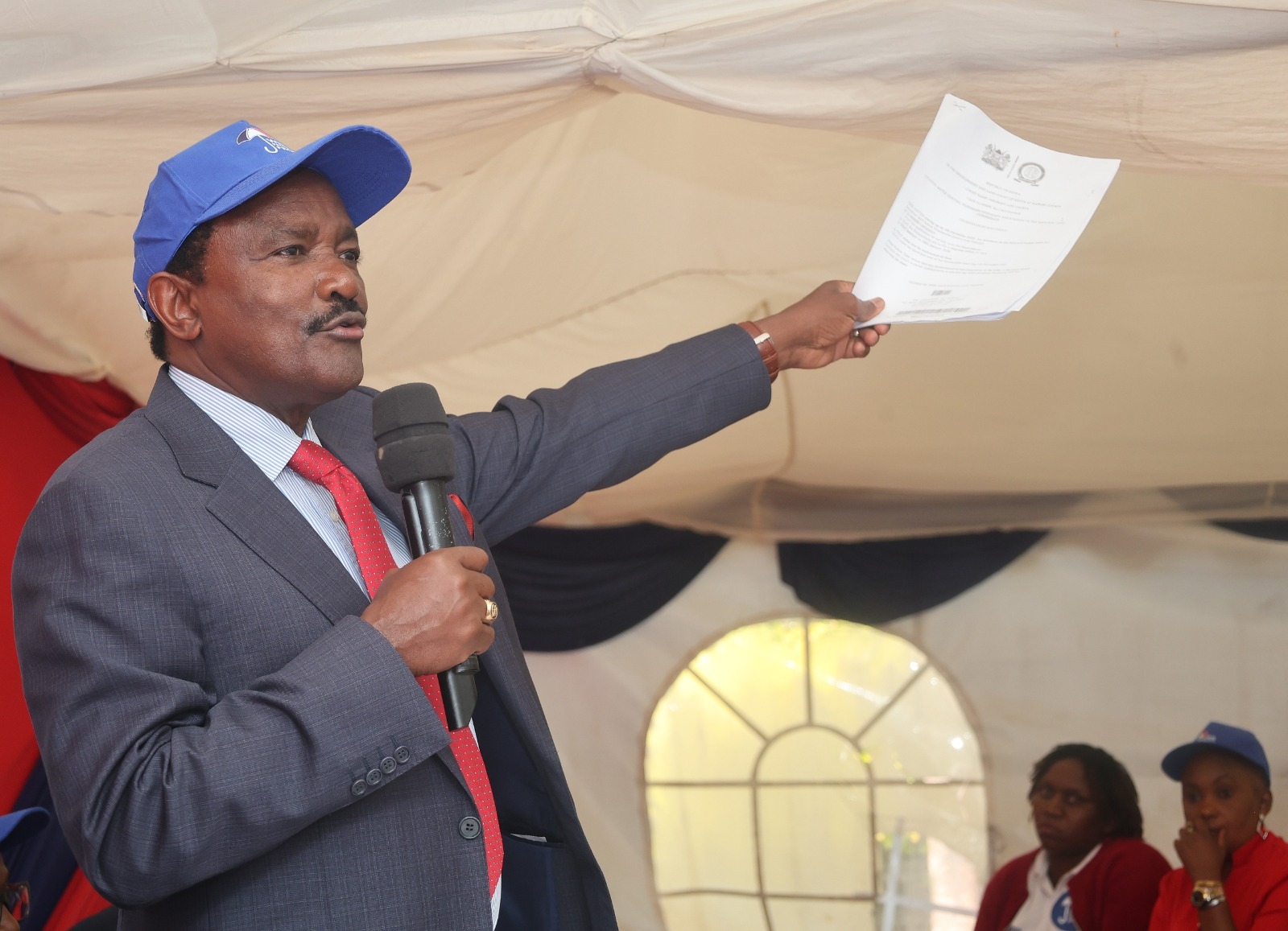

Murang'a County is set to benefit from investments by global organisations
to accelerate agroecology.
The county has caught the attention of global players after becoming the first
to pass an agroecology policy and law in Africa.
The policy and law enacted in 2023 have enabled the devolved unit to promote
agroecology in partnership with civil society organisations that promote safe
farming practices and the production of healthy foods.
The Food and Agriculture Organisation of the United Nations defines agroecology
as “an integrated approach that simultaneously applies ecological and social
concepts and principles to the design and management of food and agricultural
systems.” It “aims to optimise the interactions between plants, animals, humans
and the environment while taking into account the social aspects that must be
addressed for a sustainable and equitable food system”.
The county held a two-day meeting with officials from Global Alliance for
the Future of Food, an association of philanthropic foundations that promote
the transformation of food systems globally, at Murang'a University of
Technology.
Devolution executive Kiringai Kamau revealed that plans are underway to
include agroecology in the Sustainable Development Goals.
Global partners have identified Murang’a as a leader in agroecology. “We
also advised the national government on the National Agro-ecology Strategy for
Food Systems Transformation. This is why the global players are coming to
Murang’a because we have demonstrated that we can lead in the area,” Kamau said.
The county government has proposed eight investment priorities to the Global
Alliance for the Future of Food for funding, including development of
bio-inputs to make them cheaper and more accessible to farmers.
Kamau said the use of synthetic inputs has rendered most farms unproductive
due to high acidity which makes it difficult for plants to absorb nutrients.
The government also plans to build the capacity of local youths and
extension workers who will train farmers on agroecological practices.
“There are so many youths who are undertaking agricultural courses at
Murang’a University of Technology and they are willing to work with us,” Kamau said.
Market integration is another area of priority that requires support to
ensure farmers are assisted in selling their produce with minimal post-harvest
losses and at good prices.
This will entail the development of aggregation centres with cold storage
equipment as they await transportation to buyers.
Already, the county has developed a digital platform that brings together
organic produce buyers and farmers, enabling them to place orders for the
produce.
Establishment of farm hubs or cooperatives through which small-holder
farmers will be supported was also listed as a priority investment area as well
as research and development in agroecology.
The government, together with its partners, has already identified
demonstration farms where farmers are trained on agroecological practices.
It has also partnered with Murang’a University of Technology to offer
courses on agroecology ranging from a certificate to a master’s degree.
The funding will be used to support all players in organic foods value chain and encourage more people to embrace it.
“We recently hosted the agriculture department from Trans Nzoia county
that is currently working on an agro-ecology policy. We want farmers to earn
more. We also want to support the trainers and farmers providing demo farms and
ensure the entire supply chain is well facilitated,” Kamau said.
The need for enhanced research was underscored during the meeting attended
by organisations such as Bio Vision and IKEA Foundation.
Benson Mwangi, the director of Mariira campus of Murang’a University, said
farmers and enthusiasts can attend a short course on agroecology.
The course has six modules that take a week each at Sh15,000 per a module,
which is inclusive of meals and accommodation.
“We want to reach as many people as possible to train in agroecological
principles, so that we can improve our production without side effects by
improving our soils that are currently in very poor condition,” Mwangi.
The university is currently focusing on strategies of developing new farm
technologies to improve soils and deal with climate change.
Elijah Kamau, the coordinator of the Livelihoods Improvement Programme under
the Institute of Culture and Ecology, one of the civil society organisations
partnering with the county to promote agroecology, said the disease burden will
drastically reduce when more farmers embrace the practice.
He said agroecology, a practice that includes conservation agriculture and
other sustainable practices such as intercropping and crop rotation, enabled
him to double his food production on his quarter-acre farm.
Kamau said previously he produced between one and two bags but agroecology
made it possible for him to reap four or more bags.
He said the organisation pitched camp in the county in 2017 and has
supported research and capacity building of farmers to accelerate adoption.
“The meeting we’ve had with donors is the culmination of hard work done by
both CSOs and the county government and we are very optimistic for the future”.
Governor Irungu Kang’ata said the practice will go a long way in ensuring
all households are food secure.
He said it complements intervention measures already being undertaken by his
administration to raise food production, including issuance of high quality
maize seeds.
The seeds have enabled farmers with small farms to produce up to three bags
of maize, up from only half a bag before.
“This means that we’re harvesting about 1 million bags of maize per season
and could only get about 200,000 before,” he said, adding that agro-ecological
practices would double this figure and result in higher returns for farmers.
He said Murang’a, being the largest producer of avocados in Kenya, will
benefit a lot from agroecology as it will ensure local produce fetches premium
prices.
Last year, the county earned Sh4.6 billion from avocado exports and
accounted for 32 per cent of national production.
“Even the mango sector has gone up. We’re now working with four processors
and such ideas are normally generated in such forums,” Kang’ata said.
INSTANT ANALYSIS
Global partners have identified Murang’a as a leader in agroecology after it formulated a policy and a law to promote the practice. The county government has proposed eight investments to the Global Alliance for the Future of Food for funding, including development of bio-inputs to make them cheap and accessible to farmers.


















